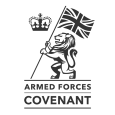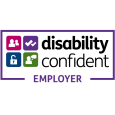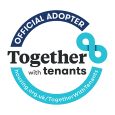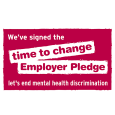Watch the Fire Safety video for tips to prevent fires in the home
Let's work together to keep your home fire-safe!
By working together to take preventative measures, we can help you and your family stay safe from the risk of fire at home.
We take fire safety extremely seriously, and as your landlord, we ensure all our properties meet current Fire Safety Standards. We also conduct regular Fire Risk Assessments to check the fire safety of your building.
Find out more in our Fire Safety Policy
Please ensure you are aware of the fire hazards in your home and actively work to reduce the risk of fire. Most fires can be prevented by taking some basic precautions.
The most common causes of house fires are cooking appliances, faulty electrical equipment and leads. Below you will find preventative measures you can take to help keep yourselves safe at home:-
Find further information by downloading guidance on Fire Safety in the Home
Remember! If there is a fire in your home -Get out, Stay out and call 999 - don't try to tackle the fire yourself, and never go back into a burning building. |
Last year, Fire and Rescue Services in England attended over 143,000 false fire alarms due to faulty equipment.
If your smoke detectors are battery-operated, change the battery at least once per year, with a good quality one.
If they are mains-powered and faulty or broken, call us immediately on 0161 226 4211 to report it.
- Don’t leave pans unattended
- Take care if wearing loose clothing
- Keep the oven, hob and cooker clean and free from grease
- Once you have finished, check that appliances are turned off
- Avoid leaving children alone in the kitchen
- Don’t cook if you are under the influence of alcohol or drugs
- Remember to close your kitchen door at night when you go to bed or if you are leaving your home
- Make sure electrical appliances are kept in good working order and do not use them if there are any signs of damage or loose wiring
- Unplug appliances before going to bed or when you are not using them
- When changing a fuse, make sure you use the right one to prevent overheating
- Don’t overload sockets, avoid the use of electrical extension leads where possible and always make sure that they are to the correct British Standard
- Keep portable heaters clear from flammable materials – don’t dry clothes over them
- Turn off electrical appliances before bed
- Never smoke in bed
- Make sure cigarettes and other smoking materials are fully out before disposing of them
- Always use an ashtray and put it on a non-flammable surface at night
- Don’t leave lit cigarettes unattended
- Keep matches and lighters out of the reach of children
- Where possible cigarette lighters should be filled outside
There has been a recent increase in fires caused by a faulty electric bike’s lithium-ion batteries.
Please ensure you store and charge e-bikes and scooters correctly and follow the manufacturer's instructions.
You can find further advice for the safe use of electric bikes and scooters on the GMFRS website
You only have 3 minutes to escape from a house fire. Would you or your household know what do in the event of a fire? Making an escape plan could save your life! Make a plan that will help you get an early escape.
1. What should you do in the event of a fire?
- Plan your escape before a fire happens so that everyone can leave the house as quickly and safely as possible.
- Identify two possible escape routes from every room and plan this with your household present.
- Be sure that your escape plan takes into account the particular characteristics of each member of your family including age, physical conditions, and sleeping habits/hearing ability.
- Teach children never to hide under the bed or in a cupboard. Allow children to master fire escape planning and practice before holding a fire drill at night when they are sleeping.
- Practice fire drills and your escape plan with the alarm sounding. This will teach children to associate the alarm signal with the need to escape.
- Meet at a pre-arranged spot outside the home, in order to ensure that everyone has escaped properly.
- Practice your escape plan at least twice a year.
2. Leaving the house
- Don't panic; stay calm.
- Check each of the doors on your primary escape route before opening; if they feel hot do not open them, use your alternative escape route.
- Crawl on the floor. Smoke and heat rise so you should keep as close to the floor as possible.
- If your clothes catch on fire, don't run! STOP where you are, cover your face, DROP to the ground, then ROLL over and over to smother the flames.
3. Once you have left the house
- Call the fire brigade. Make sure you give your full name and address.
- Never go inside a burning building. Only firemen have the equipment enabling them to go into a fire.
- Do not panic; stay calm. If you act quickly according to these guidelines you will increase your household's chance of survival in a fire.
Home Fire Safety Assessment (HFSA)
A Home Fire Safety Assessment (HFSA) is a home visit, or telephone call, delivered by Greater Manchester Fire and Rescue Service to assess and reduce the risk of fire in your home.
What is a Home Fire Safety Assessment?
The Home Fire Safety Assessment includes the following key elements:
- Fire Risk Assessment
- Evacuation Planning
- Hazard Spotting
- Installation/Provision of Fire Safety Equipment including smoke alarms
- Fire Safety advice
- Brief Interventions including signposting to other agencies for support if required
How to make a referral for a Home Fire Safety Assessment
- Via Safelincs online self-assessment toolkit: http://www.safelincs.co.uk/hfsc/?ref=GMFRS
- Or visit Greater Manchester Fire and Rescue Service's webpage
- You can continue to make referrals via the GMFRS Contact Centre on 0800 555 815 where an advisor will go through the assessment with you over the telephone.
With the cost of living rising, Greater Manchester Fire and Rescue Service (GMFRS) released information on Staying Fire Safe at home.
The Fire Service understands that people will be looking at ways to reduce their bills, but this shouldn’t be done in a way that could put you in danger.
GMFRS has a range of information and advice on their website to help keep you safe at home during the cost-of-living crisis.
You can also download their cost of living leaflet here
These can be used in a garden, however it is important they are positioned in a location that will not cause a nuisance to neighbours or cause damage to trees, fences or buildings. Here are some important safety tips:
- Safe Distance: Keep your BBQ or chiminea well away from sheds, fences, trees, shrubs or garden waste.
- Supervision: Never leave BBQs or chimineas unattended while in use.
- Fire Safety: Have a water source nearby in case of emergencies.
- Charcoal: Use the right amount of charcoal to cover the base of the BBQ, but not more (but not more (normally around 5cms).
- Keep Others Safe: Children, pets, and garden games should be kept away from the cooking area.
- Cooling Down: Allow them to cool completely before moving them and ensure they are fully extinguished.
- Disposable BBQs: Follow the safety instructions provided with disposable BBQs. Never use a BBQ indoors.
- Ash Disposal: Empty ashes onto bare garden soil, not into bins. Hot ashes can cause fires.
- Responsible Grilling: Enjoy yourself, but avoid excessive alcohol consumption while grilling.
- Starting Fires: Use only recognised lighters or starter fuels on cold coals. Never use petrol or paraffin.
By following these guidelines, you can enjoy the outdoors while ensuring safety for yourself and others.








